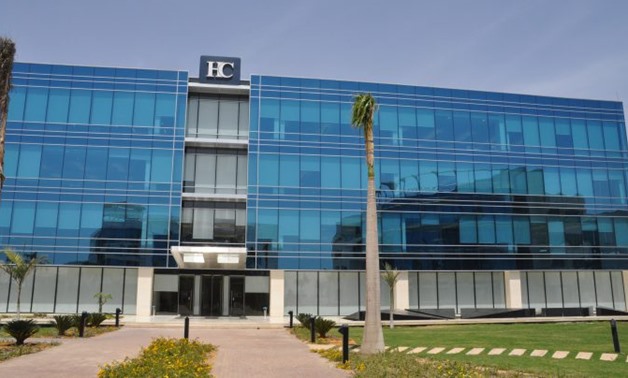
HC headquarter- the company's website
CAIRO – 13 August 2018: HC Securities & Investment expected Egypt’s inflation to stabilize in August, with anticipations that the Central Bank of Egypt will keep interest rates unchanged during its upcoming meeting.
HC said in a report Monday that Egypt’s headline inflation in July came higher than the expectations of HC Securities & Investment by 1.5 percent.
The report attributed the rise in inflation to the high monthly food and beverage inflation that recorded 2.1 percent, contributing to 1.15 percent of the total monthly inflation.
The Central Agency for Public Mobilization and Statistics (CAPMAS) announced Thursday that Egypt’s annual consumer price inflation slipped to 13 percent in July 2018, compared to 34.2 percent in the same month of 2017.
On a monthly basis, inflation increased 2.5 percent in July, compared to the previous month, to record 289.9 points, CAPMAS stated.
Moreover, CBE said that Egypt’s annual core inflation rate declined to 8.54 percent in July 2018 from 10.9 percent in June 2018, according to a report.
On a monthly basis, core inflation recorded 0.6 percent in July 2018, compared to 1.6 percent in June.
Core inflation discounts or strips out certain categories that are considered more volatile.
“We believe the MPC will likely keep interest rates unchanged at its upcoming meeting, expecting monthly inflation to start normalizing in August to 1 percent on the phasing out of first and second rounds' effects of fuel, electricity, and tax reforms, resulting in a nearly stable yearly inflation in August,” Chief Economist at HC, Sara Saada, said.
CBE cut the interest rates twice earlier this year in February and March by 200 basis points, and kept the rates unchanged during May and June meetings at 16.75 percent and 17.75 percent for the overnight deposit rate and the overnight lending rate, respectively.
“We believe the local drivers of price inflation will stabilize in 4Q18, after which we may witness further monetary policy easing if exogenous factors, including international oil prices, exchange rate, and emerging market yields are favorable,” the chief economist added.
Saada noted that although the fuel subsidy reform, which typically affects the food and beverage inflation figure, and food and beverage price, was implemented in June, inflation in July was higher than the June figure.
The Cabinet announced on June 16 lowering the fuel subsidy to 25 percent, after cutting electricity subsidies on June 12, raising prices by an average of 26 percent in the 2018-2019 fiscal year that began in July.
According to Saada, other major contributors to inflation were housing and utilities, with prices rising 5.2 percent m-o-m following a 14.6 percent increase in the prices of electricity, natural gas, and other fuel products, contributing to 0.56 percent of the total monthly inflation figure.
Additionally, the prices of alcoholic beverages and cigarettes were raised by7.2 percent m-o-m after cigarette prices increased 7.6 percent m-o-m upon cigarette tax reforms, contributing to 0.34 percent of the total monthly inflation.
HC expected earlier interest rates to take almost two years to return to pre-flotation levels.
Egypt floated its currency in November 2016, losing 50 percent of its value as a part of an economic reform program.
Egypt embarked on a bold economic reform program in 2014 that includes floating its currency, losing about 50 percent of its value, cutting energy subsidies and introducing new taxes to cut the budget deficit.

Comments
Leave a Comment